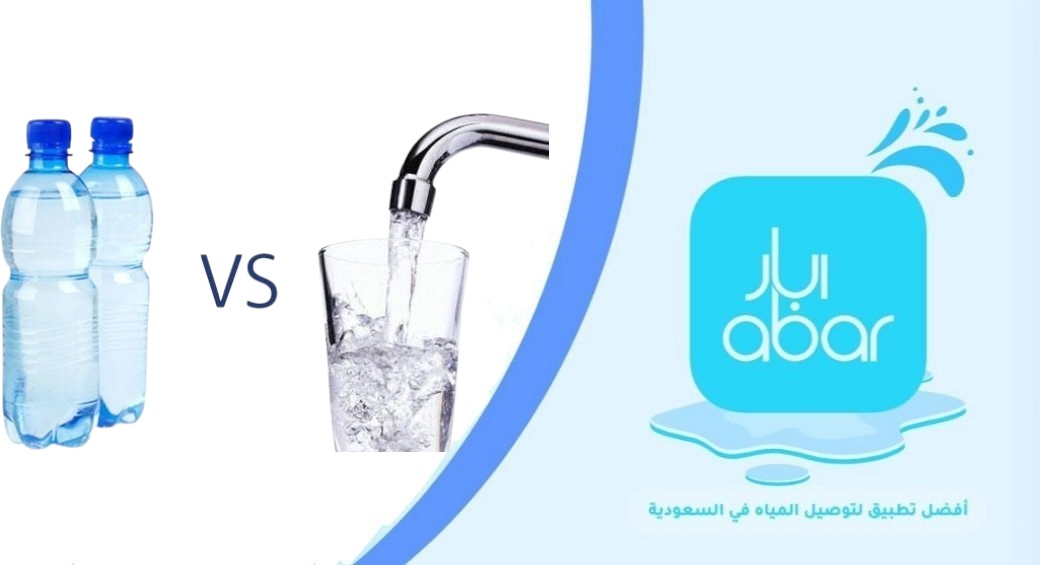A scientific analysis of the components of bottled water compared to tap water.
In a country known for its desert climate and intense heat for most of the year, water becomes more than just a basic necessity; it becomes a vital element tied to health, comfort, and even trust. As consumer awareness grows in Saudi Arabia, many are asking a seemingly simple yet critical question: Is bottled water better than tap water?
In this article, we’ll present a comprehensive comparison between the two options, focusing on the actual situation in Saudi Arabia in terms of quality, safety, cost, environmental impact, and societal preferences—to help you make an informed, confident decision.
1. Water Quality in Saudi Arabia
Tap Water: Is It Safe?
Tap water in Saudi Arabia is monitored by authorities such as the Ministry of Environment, Water and Agriculture, and the National Water Company. It undergoes treatment that includes impurity removal, filtration, and chlorination.
However, tap water quality can vary from city to city, or even between neighborhoods, due to:
Aging water infrastructure.
Changes in salinity, especially in coastal areas.
Home water tanks that may not be cleaned regularly.
The presence of residues or excess chlorine that affect taste and smell.
Bottled Water: Consistent Purity
Bottled water is produced in licensed factories under supervision from the Saudi Food and Drug Authority (SFDA), ensuring more stable quality. Bottled waters vary between:
Natural mineral water, sourced from underground wells (e.g., Nova or Safa Makkah).
Purified or processed water, treated using RO or ozone (e.g., Berain or Naqi).
Regular lab testing to ensure purity.
Brands like Nova, Berain, Naqi, Rawa, and Mana pride themselves on offering consistent, uncontaminated water quality.
Conclusion: Tap water may be safe in many areas, but bottled water offers consistent quality and a neutral taste.
2. Cost Comparison Between Tap and Bottled Water
While tap water is cheaper upfront, it comes with hidden costs:
Buying and maintaining filters.
Boiling and electricity usage.
Occasional purchase of bottled water when quality is doubted.
Bottled water, despite its relatively higher price, offers peace of mind and health benefits that are often worth the cost. Additionally, apps like Abar offer competitive prices on water cartons, especially for bulk or weekly subscriptions.
3. Environmental Impact: Who Wins in Sustainability?
Tap Water:
Requires no packaging, transportation, or production—meaning a minimal carbon footprint. It also reduces single-use plastic bottle consumption.
Bottled Water:
Companies are increasingly using recyclable bottles and eco-friendly packaging. Campaigns like “Reduce Plastic” promote reusable bottles. Consumers can help by reusing bottles or returning them to designated collection points.
4. Taste and Smell: A Personal Experience
Some consumers report a chlorine taste in tap water, particularly in major cities, prompting a preference for bottled water.
Bottled water is often smoother in taste and free from odors due to its fine filtration or deep natural sources.
5. Consumer Surveys in Saudi Arabia
According to published reports and surveys on platforms like Twitter and Reddit - Saudi Arabia:
Over 60% of Saudis prefer bottled water for drinking.
For cooking, tea, or coffee, filtered tap water is used almost as much as bottled water.
Main reasons for bottled water preference: trust, taste, and habit.
Young people and families tend to choose bottled water for its convenience, taste, and reliable quality.
6. Health and Safety: Peace of Mind First
In an age of rising concerns about bacteria and heavy metals, bottled water provides a safe option:
No need for storage in old or poorly maintained tanks.
No exposure to potentially contaminated pipes.
No need for treatment or boiling before use.
In contrast, while tap water may be theoretically safe, it depends heavily on individual upkeep like tank cleaning, filter installation, and quality monitoring.
7. Convenience and Usability
One of bottled water’s key advantages is its flexibility in use and distribution:
Available in various sizes to suit homes, offices, schools, or cars.
Easy to cool quickly.
Simple to store and transport.
Tap water, on the other hand, requires manual bottling or filter systems, adding time and effort.
Conclusion: Why Bottled Water Comes Out on Top
Simply put, bottled water offers:
Reliable quality.
Pure taste that satisfies.
Health assurance with no worry.
Convenience at every moment.
In a world that’s evolving rapidly, bottled water has become a conscious choice—not a luxury. It’s an investment in your health and your family’s well-being. If you’re looking for the best—bottled water is the answer.
Looking for the Best Option?
Try ordering your water from apps like Abar, where you can find:
All top brands in one place.
Weekly deals on water cartons.
Fast delivery right to your door.
Don’t wait until you’re thirsty—choose safety, purity, and convenience.
Choose bottled water.




